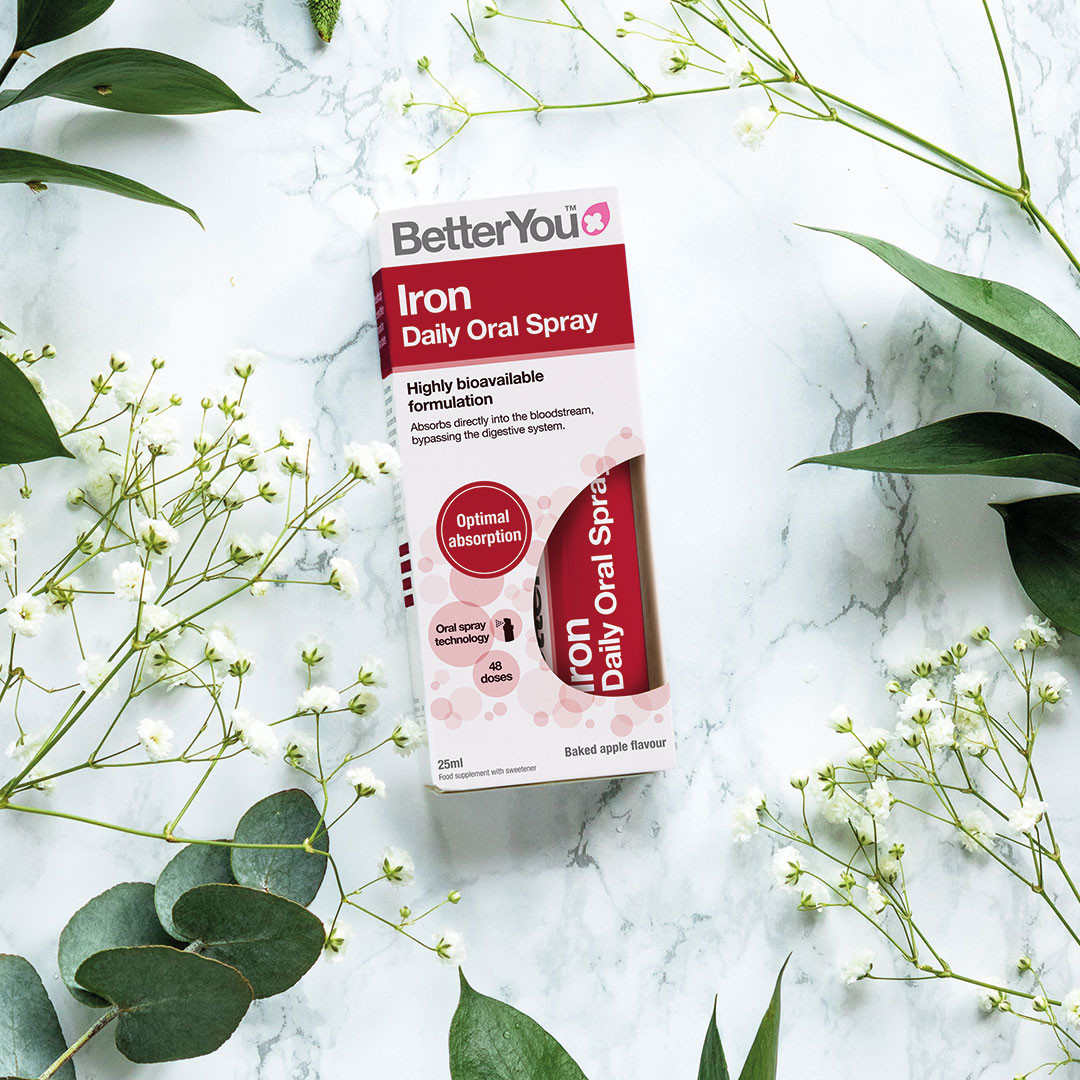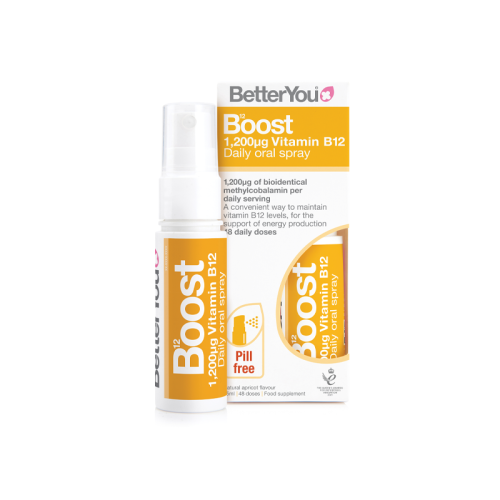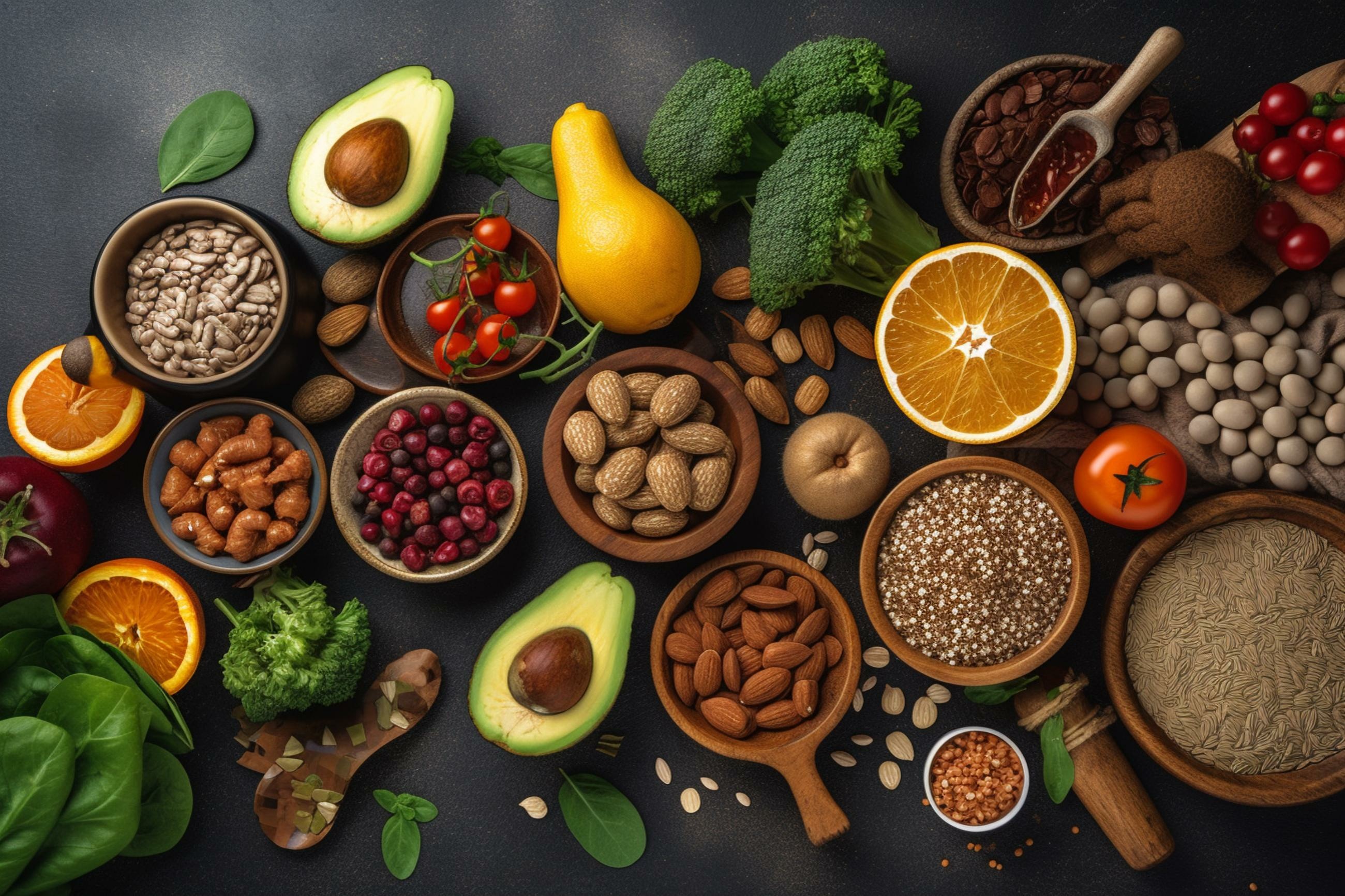
Whether you’re taking part in Veganuary or have been living a life powered by plants for a while, it’s handy to know which supplements and minerals can offer you some extra support. Although some people think a vegan lifestyle meets all the daily nutritional requirements, you may find that there are some crucial things lacking in a vegan diet, and begin to wonder what vitamins and supplements should a vegan take.
We’ve put together this handy guide to take you through some of the basics of vegan vitamins.
Vitamin B12
Vitamin B12 keeps your nerve and blood cells healthy to help prevent conditions that can make you feel tired and weak, such as anaemia, as well as infertility and bone and heart disease. It’s usually found in foods like meat, dairy products and eggs, which means when following a vegan diet you’ll need to get it from another source to avoid become vitamin B12 deficient.
Fortified foods are a great way to make sure that you’re meeting your targets, and are readily available as breakfast cereals, soy products and plant milk.
What’s the daily recommended intake? 1.5mcg for adults between 19 to 64.1
If you don’t feel like taking pills each morning, you can supplement your diet by adding these Yeast Flakes with Vitamin B12 to your savoury dishes to give them a slightly nutty flavour.
Iron
You need iron to make new blood cells and DNA, as well as making sure that your blood carries oxygen throughout your body. Not only this, but it is also needed for energy metabolism and if you’re lacking in iron you can develop anaemia, fatigue and lower immune function.
To ensure that you’re getting enough iron in a vegan diet, try to include foods like beans, peas, nuts, seeds, dried fruit and cruciferous vegetables in your weekly meal plan. What’s more, if you feel like you’re lacking, supplements like this BetterYou Iron Daily Oral Spray are available.
What’s the daily recommended intake? 8.7mg for men, 14.8mg for women ages 19 to 50 and 8.7mg for women over 50.2
Too much iron can actually have a negative effect on your health, so before you start taking supplements, speak to your GP.
Calcium
We all know that calcium is good for our bones and teeth, but did you know that it also makes sure blood clots normally, boosts heart health, improves your nerve system and regulates muscle contractions too?
It’s important to make sure you’re getting enough calcium to lower the risk of developing osteoporosis in later life. Make sure your meal plans are including plenty of green leafy vegetables such as broccoli, cabbage and okra as well as soya beans, tofu, nuts and fortified soya drinks.
What’s the daily recommended intake? 700mg for everyone.3
Gluten and dairy-free, these Alive! Calcium Soft Jells are formulated with a blend of 26 fruits and vegetables to help supplement your vegan diet.
Zinc
People lacking in zinc may find that they’re more likely to come down with illnesses and colds more frequently than those getting the right amount. Essential for your immune system, metabolism and helping your body repair cells, it’s an important one to look out for.
With a vegan diet you can absorb it from foods such as tofu, sprouted beans, fermented foods, legumes, seeds and whole grains, but you may want to speak to your GP if you think you may have low levels of zinc in your blood.
What’s the daily recommended intake? 9.5mg for men aged 19 to 64, 7mg for women.4
Vitamin D
Vitamin D is essential for mood, memory, muscle recovery and helping the body regulate its levels of calcium and phosphates – without it, you could find yourself experiencing bone pain or even a condition called osteomalacia. Sources of vitamin D include oily fish, red meats, egg yolks and liver, which is why this is such a crucial one for vegans to take supplements for.
Vitamin D can also be made by the body when it's exposed to direct sunlight, so during the winter months when it’s darker outside, people including omnivores, can become deficient.
What’s the daily recommended intake? 10mcg for everyone.5
With BetterYou Dlux Plus Vitamin D Plus K2 Daily Spray, you can work towards optimal bone health in an effective and convenient format, plus it tastes of peppermint too!
Omega-3s
The fatty acids found in Omega-3s, are actually ‘good’ types of fat and can help to lower the risk of heart disease, arthritis, dementia and even depression, by curbing inflammation in the body, and slowing the plaque and fat build up in blood vessels. It’s a commonly known fact that you can find them in fish, but when following a vegan diet you may be unsure.
Vegan-friendly sources of Omega-3s include vegetable oil, walnuts, dark leafy veggies, edamame and flaxseed.
What’s the daily recommended intake? 200-300mg for everyone.6
This Omega seed mix is a great source of Omega-3s and is high in fibre too. Add a sprinkle to yoghurts, salads and granolas, or simply enjoy as a tasty snack on the go.
Iodine
To ensure that your cells and metabolic rate are kept healthy, your body needs to have enough thyroid hormones which use iodine to form. Omnivores can get their iodine from sea fish and shellfish, but if leading a vegan life, you’ll need to make sure you’re upping the amount of cereals and grains in your diet.
Iodine is another one of those minerals and vitamins that can have a harmful effect if you overdo it, and can actually lead to altering the way that your thyroid gland works. Make sure you need an iodine supplement before you start taking it by speaking to your GP.
What’s the daily recommended intake? 0.14mg for adults.7
As well as iodine, Himalayan Pink Rock Salt is packed full of health-boosting beneficial nutrients such as potassium, iron and zinc. What’s more, as the coarse grains are larger it means that you can lower
your overall salt intake without losing the flavour in your food.
At Grape Tree, we stock feel-good foods and supplements to help you lead a vegan life. If you’re new to a plant-based diet you may want to speak to your GP to get more information on balancing your food groups and taking any supplemental support.
Find out more about our range of vegan products.
-----------------------------------------------------------------
1. https://www.nhs.uk/conditions/vitamins-and-minerals/vitamin-b/
2. https://www.nhs.uk/conditions/vitamins-and-minerals/iron/
3. https://www.nhs.uk/conditions/vitamins-and-minerals/calcium/
4. https://www.nhs.uk/conditions/vitamins-and-minerals/others/
5. https://www.nhs.uk/conditions/vitamins-and-minerals/vitamin-d/
6. https://www.healthline.com/nutrition/how-much-omega-3#general-guidelines
7. https://www.nhs.uk/conditions/vitamins-and-minerals/iodine/

